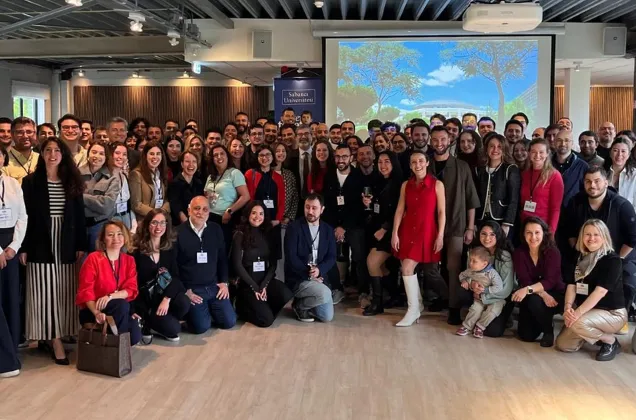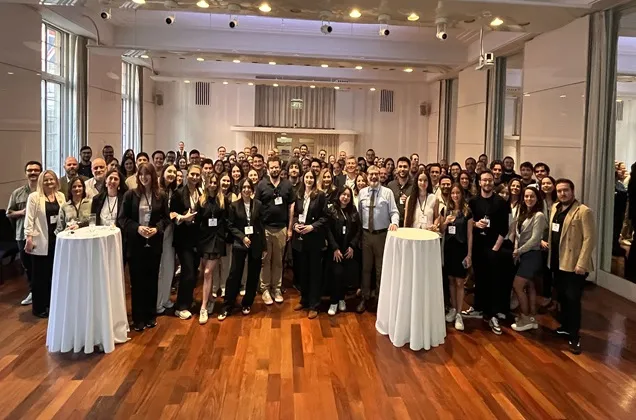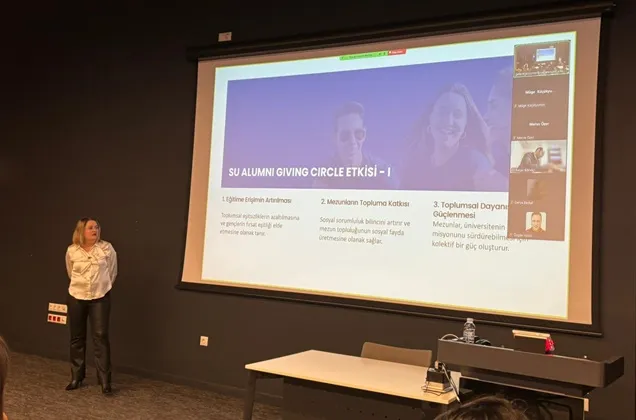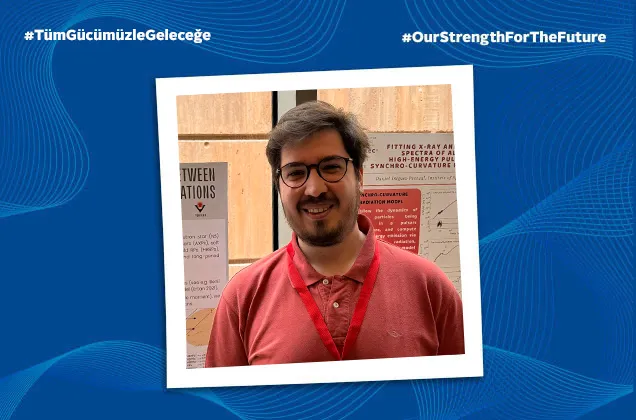07/05/2024
Sabancı University Faculty of Engineering and Natural Sciences 2019 undergraduate graduate Mehmet Kerem Çıtak, who has achieved great success by winning the Gates Cambridge Scholarship, the most prestigious scholarship of the University of Cambridge, answers our questions about his education life, career journey, and goals.
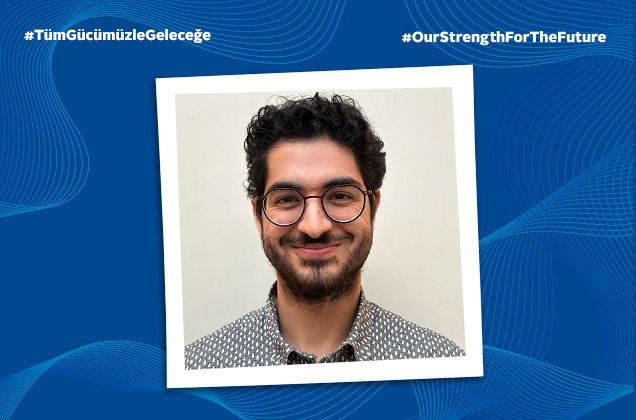
Can you tell us about your education at Sabancı University?
I started to study at Sabancı University in 2014. At the end of my first year, I enrolled in the Materials Engineering and Nanotechnology Department and chose my courses accordingly in the following semester. I completed my compulsory summer internship at Imperial College London in my 3rd year and started my thesis project in Prof. Yusuf Menceloğlu's laboratory. At the same time, I enrolled in the double major program in the Molecular Biology, Genetics and Bioengineering Department, because it was parallel to the program I was studying, stood at the intersection of the subjects that interest me, and was a field in which I wanted to work. After graduating from both programs in 2019, I started my master's degree at EPFL.
How did being a Sabancı University graduate benefit you in your professional life?
I think I studied in the best programs at Sabancı University. Thanks to the frequent opportunities to work in the laboratory and the chance to participate in projects, I received intensive practical training as well as theoretical education in the courses. The open-door policy of all our academics and the relatively small number of students in the departments provided the opportunity to frequently exchange ideas with my professors. I think my options for internship and job applications increased thanks to the connections I made. In the choices I made while pursuing an academic career, I always felt the support of academic staff members whom I could consult and trust, and I benefited greatly from this in my master's and doctoral applications.
You have won the Gates Cambridge Scholarship, the most prestigious scholarship of the University of Cambridge. Which program will you study in? Can you tell us a little about your application and acceptance process?
I will start my doctoral studies in the Department of Materials Engineering and Metallurgy in October 2024. The scholarship application is processed in parallel with the PhD application, and the required additional documents are also uploaded to the online system. The most important of these is the additional reference letter requested regarding the scholarship and the paragraph questions in which you explain your specific suitability for the scholarship. The application, which consists of 4 main criteria, examines your academic excellence, your reason for choosing the program and research topic, your leadership capacity, and your dedication to improving the lives of others. During my application, I received my reference letter from Professor Canan Atılgan, one of my professors who mentored and guided me throughout my education at Sabancı University. At the same time, by talking to my advisors in the laboratory I attended, I obtained the contact information of the students who had previously received this scholarship. By listening to the ideas of these students, I prepared my own application documents.
After the application, a preliminary interview is held with the academics in the department you apply to, and your suitability for the program and the laboratory is evaluated. Your department at Cambridge University then decides whether to nominate you for this scholarship, and for this, you need to have already been accepted into a PhD program to get there. In this process, the number of applications, which is approximately 8000 at the beginning, drops to around 100. The shortlisted candidates have an approximately half-hour interview with academics from the Gates Cambridge Foundation, which includes questions about scholarship eligibility and personal goals. After these processes, the final decision is made and notified to the candidate.
What are your projects and goals regarding your doctoral studies?
I plan to do my doctoral studies at the Cambridge Center for Medical Materials laboratory. In my project, I will try to design tissue engineering scaffolds optimized for regenerative medicine in terms of their mechanical, chemical, and biological properties, focusing on linking structure with function. Although the areas of use of these scaffolds vary, the main ones are wound-healing bandages, synthetic tissues that repair damaged organs against impact and trauma, and synthetic organs that are intended to be produced in the future. My PhD at the Cambridge Center for Medical Materials will provide me with the resources, expertise, and collaborative opportunities to further explore this field and contribute meaningfully to society. Through my research, I aim to make healthcare tools and equipment more accessible to everyone who needs them.
Can you give information about Ion Membranes, the start-up you are currently working for? What are your duties in this company?
I have been working as an R&D engineer at Ion Membranes since February. I learned about the company thanks to Prof. Özge Akbulut from Sabancı University. The company was founded by two partners who specialize in green hydrogen and sustainable energy, and works on nature-friendly and sustainable energy products, especially in line with the European Union's 2030 goals. The company's main focus is on high-efficiency membranes that are produced using new technology, do not contain fluorine, and are used in battery and hydrogen fuel applications.
My main duties in the company involve the following:
-Conducting literature and benchmarking research on R&D, new products, and existing product projects.
-Conducting existing product and new biomedical product development studies and laboratory trials, monitoring test studies to be carried out inside and outside the company, providing inputs for production processes, and supporting industrialization steps.
-Taking an active role in project writing and project execution in all kinds of national and international R&D projects in TÜBİTAK, Europe, or the US, and providing leadership when necessary.
-Documenting all work done and preparing the necessary reports.
What are your goals going forward?
I plan to continue my academic career after completing my doctorate. After graduation, I have the goals of doing research while being a professor and teaching at universities and research institutions. I think the most important technological advances of the future depend on the development of new materials. In my academic life, I aim to expand existing knowledge at the intersection of biology and materials science by exploring complex systems, which are the building blocks of living matter, and to contribute to developments in the field of health as a materials engineer.
What advice would you give to prospective students and students who are just beginning their undergraduate education?
First of all, if they are not clear when choosing a department, I would recommend them not to rush. I think it would be beneficial for them to participate in 'major fest' events, which enabled me to get information about other departments other than Manufacturing Systems Engineering (or Industrial Engineering, as it is currently called), which I enrolled in when I started in 2014. Developing ideas about their areas of interest and researching the areas and problems they think are lacking in their subject during their undergraduate education will be beneficial in their professional lives in the future.

